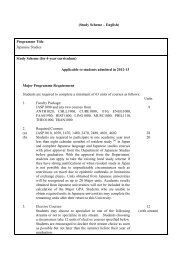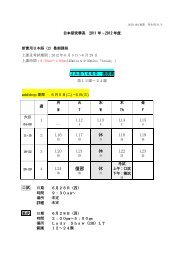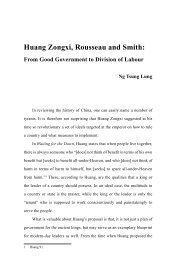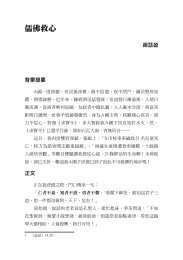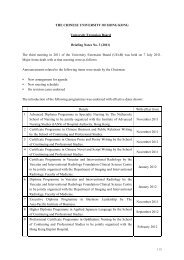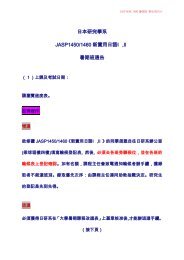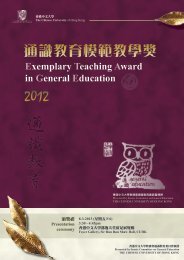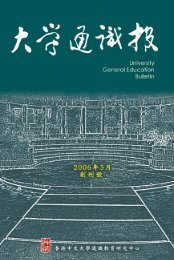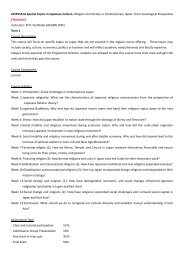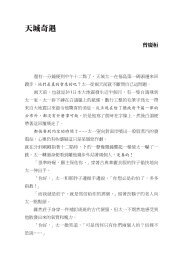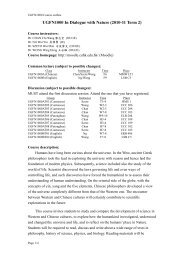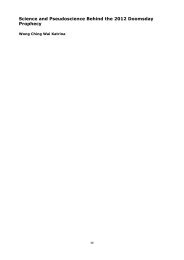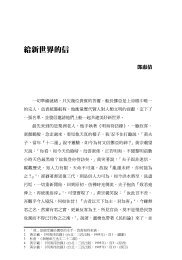ä¸è¼å ¨æ¸ - The Chinese University of Hong Kong
ä¸è¼å ¨æ¸ - The Chinese University of Hong Kong
ä¸è¼å ¨æ¸ - The Chinese University of Hong Kong
You also want an ePaper? Increase the reach of your titles
YUMPU automatically turns print PDFs into web optimized ePapers that Google loves.
Wyman Kwok, Education and Thinking 203<br />
From the experience <strong>of</strong> an experienced critical thinker, it should not be<br />
difficult to see that the above are valuable attributes that can promote the<br />
good practice <strong>of</strong> CT.<br />
<strong>The</strong>re are mutual interactions between cognitive skills and affective<br />
dispositions, so that both components must not be ignored. <strong>The</strong>y can work<br />
hand in hand in a virtuous circle — competency in skills can strengthen<br />
favorable dispositions, and strengthened favorable dispositions can in turn<br />
enhance further competency in skills, and so on. By contrast, deficiency in<br />
either component would instead result in a vicious circle.<br />
After briefly reviewing aspects <strong>of</strong> the rich content <strong>of</strong> CT, one should<br />
then begin to understand why the consensus statement regarding CT and the<br />
ideal critical thinker arrived at in the Delphi Report would be elaborated upon<br />
in such a detailed manner:<br />
We understand critical thinking to be purposeful, self-regulatory judgment<br />
which results in interpretation, analysis, evaluation, and inference, as well as<br />
explanation <strong>of</strong> the evidential, conceptual, methodological, criteriological, or<br />
contextual considerations upon which that judgment is based. CT is essential<br />
as a tool <strong>of</strong> inquiry. As such, CT is a liberating force in education and a powerful<br />
resource in one’s personal and civic life. While not synonymous with<br />
good thinking, CT is a pervasive and self-rectifying human phenomenon. <strong>The</strong><br />
ideal critical thinker is habitually inquisitive, well-informed, trustful <strong>of</strong> reason,<br />
open-minded, flexible, fair-minded in evaluation, honest in facing personal<br />
biases, prudent in making judgments, willing to reconsider, clear about<br />
issues, orderly in complex matters, diligent in seeking relevant information,



